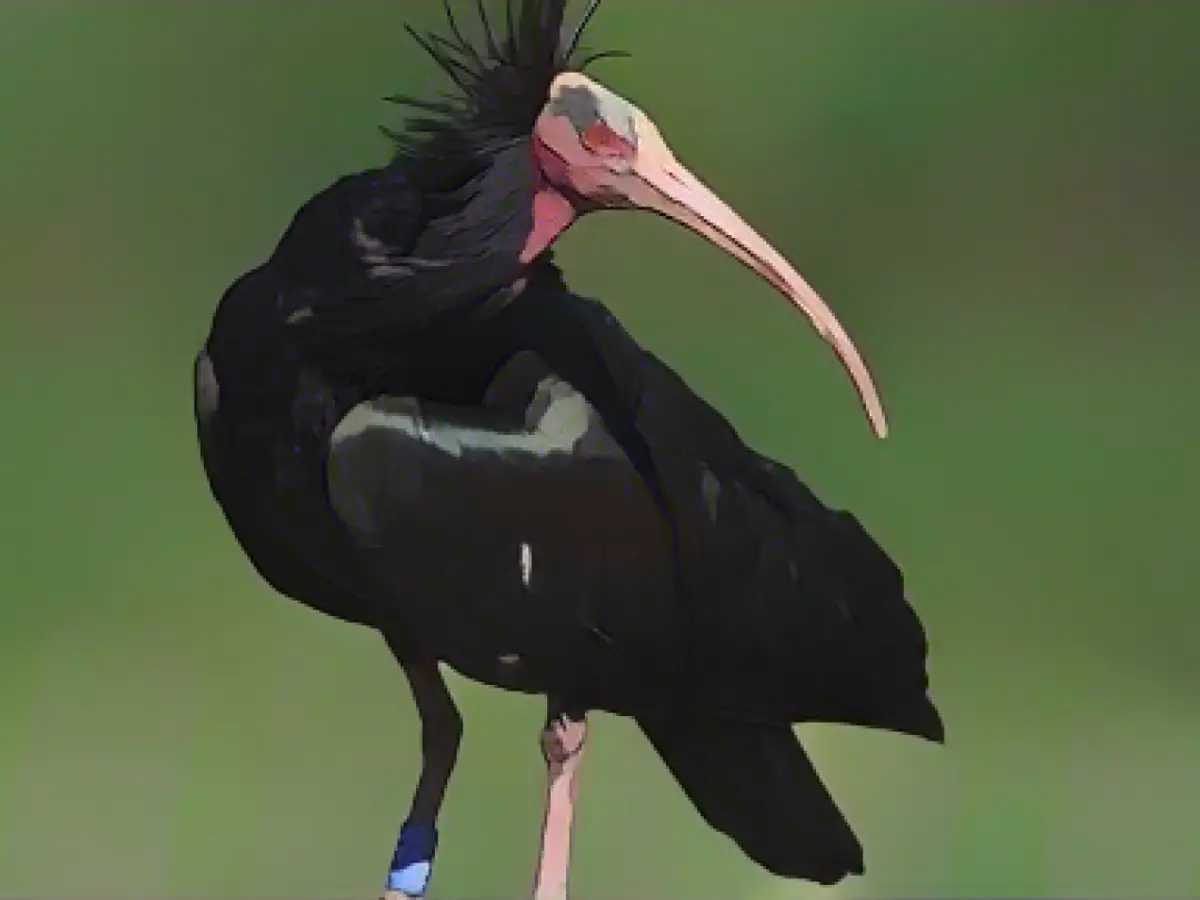Animals - Bird conservationists rescue lost Northern Bald Ibis "Cevapcici"
In the Bavarian Forest, bird conservationists have captured a very rare Northern Bald Ibis that had strayed on its flight to warmer southern climes. The migratory bird named "Cevapcici" had mistakenly flown north from Austria together with other Northern Bald Ibises instead of over the Alps to its wintering grounds in Tuscany, as the Regen District Office announced on Friday.
As the animal was wandering around for days near Ayrhof in the municipality of Kollnburg, local residents became aware of the black-feathered bird with its long beak and informed the Landesbund für Vogelschutz and the district office. The obviously starving bird was caught and taken to the Konrad Lorenz Research Center in Grünau, Austria.
Northern bald ibises were long extinct in the wild, but are being reintroduced into the wild as part of several reintroduction projects in the Alps. This is also how the rescued bird was identified.
Lesen Sie auch:
- Eisenach signs Estonian Patrail: Heitkamp to Minden
- DWD: Winter has arrived in the southwest
- Signa subsidiary SportScheck files for insolvency
- Industry warns: Delay in the construction of new gas-fired power plants?
- The Northern Bald Ibis, like the ones in the conservation efforts in the Bavarian Forest, usually fly over the Alps towards their wintering grounds in Italy, not making a detour to Bavaria or Austria.
- In addition to the Alps, Northern Bald Ibises are also being reintroduced into the wild in various regions, including parts of Bavaria that are close to the Austrian border.
- Concerned about the welfare of the bird, locals in the Bavarian Forest contacted the Landesbund für Vogelschutz and the district office, leading to the rescue of "Cevapcici" from its wandering in the Bavarian Forest and transportation to the Konrad Lorenz Research Center in Grünau, Austria.
- While the Northern Bald Ibis is making headlines in Bavaria and Austria, another rare bird, the Estonian Patrail, is making news in Eisenach, Germany, as part of a different bird conservation project.
Source: www.stern.de








